''There is no chance to get a grant for business development in Tatarstan''
7 Days: from the migration of small businesses from the region to the film adaptation of the feat of a Tatarstan tanker
What feat of a Tatarstan tankman provided the basis for the military drama Invincible? Why do old houses suddenly become 'younger' and dilapidated ones become suitable for life in Rybno-Slobodskoy district? Where are small businesses migrating from the republic? What is the reason for the extremist behaviour of young people? These and other questions were answered by correspondents of the weekly news and analytical programme 7 Days broadcasted on TNV Channel. Read more in the overview of Realnoe Vremya.
Small businesses are migrating from Tatarstan
Kazan again became the centre of a large-scale business forum last week. This time they discussed the cluster approach, innovation, improving labour productivity and supporting small businesses. The international conference Partnership for Cluster Development was the place of attraction not only for regional heads of ministries and departments, but also for federal speakers. Experts at the conference in Kazan stated that only powerful innovative companies that should ''boil in the broth'' of small enterprises can provide a technological breakthrough.
According to the ministry of economy, more than 1,400 entrepreneurs of Tatarstan run operations outside the republic. Most of our businessmen work in Bashkortostan (302), Samara Oblast (245) and Udmurtia (240).
Bulat Bayazitov is one of the old-timers in the market of soft drinks. He established the business together with a companion almost a quarter of a century ago. According to him, in the tumultuous 1990s they had to compete mainly with expensive imported drinks, their products were sold ''like hot cakes''. Now the situation has changed dramatically. Local players have become many times more, the competition is crazy and the profitability has fallen. Therefore, it is not enough to reduce costs and update the production to maintain a competitive profile in the market, one needs to look for a new ''gimmick'' every time.
In 2015, Bulat opened another plant of soft drinks in neighbouring Bashkortostan, almost in the open fields. In this step, he sees several advantages. First, the production facility appeared in an ecologically clean area of Bashkortostan, so the water quality is corresponding. Plus, the company is closer to the objects of new sales. There is another advantage, which has become a pleasant surprise for Bayazitov. In Bashkortostan, the entrepreneur received a lot of preferences and benefits, which in his native republic he had not even dreamt about.
''Any organizational issue is solved quickly, without unnecessary delays. If there are no chances at all to obtain a grant for business development in Tatarstan, then under the development programme of the northeast of Bashkiria we did receive the money,'' Bayazitov told.
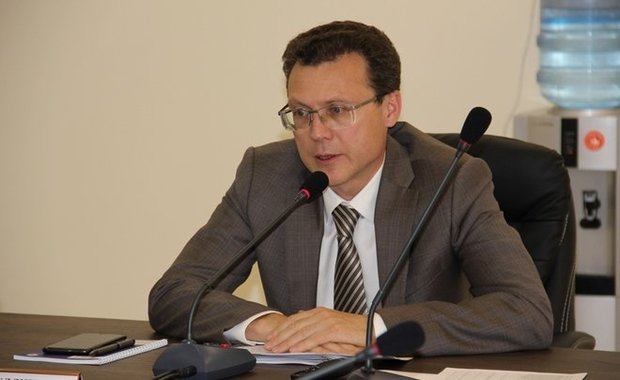
Although the interviewed entrepreneurs, who opened enterprises in neighbouring regions, do not tell directly about the high tariffs in Tatarstan — facts are stubborn. The price of electricity for small businesses in neighbouring Bashkortostan is lower by 27%, in Udmurtia — by 24%.
''We have received instructions from the president to regulate this issue at industrial parks and sites. So that our residents-producers, it is they consume the most electricity, have competitive conditions with other regions,'' said First Deputy Minister of Economy Rustem Sibgatullin.
''The problem is not so much in electricity as in taxes. Taxes stifle,'' complained Anton Divin, Deputy Director General of IPF KRAST PLC.
Taxes are a separate matter. Of course, we cannot create a ''paradise'' tax life for entrepreneurs in Tatarstan separate from the Russian legislation. Only within the regimes of special economic zones and territories of priority development. But what we could do is to introduce tax holidays for newly created small businesses. The Tatarstan ministry of finance considers it inexpedient. There are very few such regions in Russia, those that have not introduced tax holidays — Tatarstan, the Republic of Crimea and Sevastopol.
There is also a curious situation with patents. The patent system of taxation is a convenient way to avoid unnecessary bureaucracy and accountability and to support small businesses at the same time. For those who are engaged in, for example, shoe repair, hairdressing or tutoring, they can pay a fixed cost of the patent and work in peace, without fear of inspections. However, the cost of a patent in Tatarstan is one of the most expensive in the Volga Federal District. For example, the cost of a patent for hairdressing and beauty services for one year in Bashkortostan is 12,960 rubles, in Samara Oblast – 10,380 rubles, in Udmurtia — 6,144 rubles. In Tatarstan, such patent will cost the entrepreneur 26,400 rubles.
''The patent cost is not commensurate with the potential income that a particular field promises,'' said Marat Safiullin, the director of the Centre of Advanced Economic Research at the Academy of Sciences of the Republic of Tatarstan.
''At some points we do a lot, but we do not bring many things to the end. No credits available. The entire fiscal system does not understand that in order to get the tax, it is necessary to create conditions for this first,'' said Shamil Ageev, Chairman of the Board of the Chamber of Commerce and Industry and Trade of the Republic of Tatarstan.
Certainly, any issue can be viewed in a different way. Someone would object — this is not the migration of businesses from Tatarstan, but expansion in neighbouring regions. But along with such an expansion, the taxes, incomes of municipalities, investments also go away.
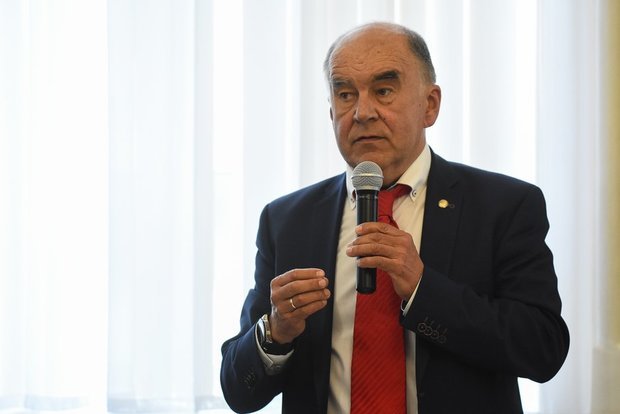
The curious case of dilapidated houses
The hero of the next piece was the house No. 18, on Zavodskaya Street in the village of Shumbut, Rybno-Slobodskoy district. The villagers claim that the house is 281 years old, the executive committee of the district claims it is 195, but according to the state register the building is only 70 years old. It seems that because of the improving condition the house is not demolished. Although the building was recognized to be in emergency condition and subject to demolition already 9 years ago.
Dmitry Kotelnikov took his mother from this house to live with him. How can the woman live in the apartment number two in these conditions? About a month ago, the ceiling collapsed in the house, first in the bathroom, then in the kitchen. Gas is off because of the emergency. The temperature in the apartment is the same as outside. Dmitry recalls how his grandmother told him how as a girl she watched kids in this house. This house and two other buildings, where now there are kindergarten, club, rural library, as well as church, were built in tsarist times by a noble man, Dmitry assures.
There are eight apartments in the house. The owners of the second and third apartments ask to recognize the house as unsafe. The owners of five more apartments want the house to be fully repaired. At first glance, it is a common situation when there is no unity and harmony among the neighbours. If not for one thing. According to the order of the executive committee of the district as of 26 December 2009, the house on Zavodskaya Street, 18 was included in the list of houses to be demolished due to physical wear during their operation. It was signed by Acting Head of the Executive Committee Galimov.
''In 2012, the inhabitants of this house were to be resettled and the house was to be demolished. But for some reason, the commission of the Rybno-Slobodskoy district excluded the house from the list of unsafe buildings,'' said Lenar Gaynullin, the coordinator of the United People's Front (ULF) in the Republic of Tatarstan.
The resolution as of 15 January 2015 states that the house No. 18 on Zavodskaya Street was excluded from the list of unsafe buildings and subject to demolition. The resolution was signed by another acting head of the Executive Committee Khabibullin.
''The United People's Front sent a request to the ministry of construction industry, housing and utilities sector. According to the ministry, this house is not subject to inclusion in the overhaul programme,'' says Gaynullin.
If the house is recognized as unsafe, owners cease to pay for major repairs, the executive director of the centre of public control in the sphere of housing and communal services notes. There are no funds in the account, so it is impossible to include it in the programme of major repairs. Dmitry Romanov says that the situation with the house No. 18 is a nonsense for Tatarstan and for Russia.
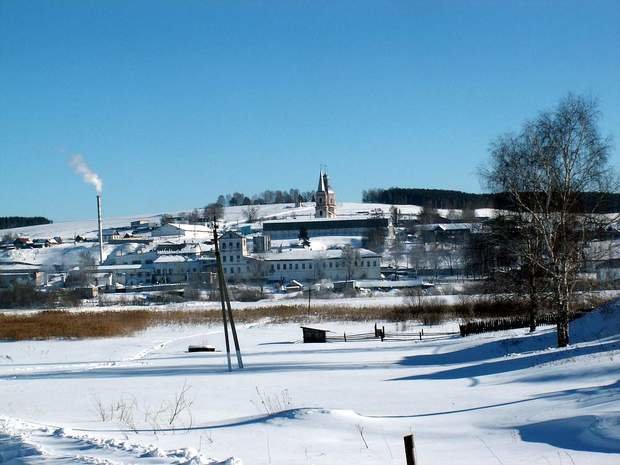
''We have no right to recognize housing as unsafe and emergency, the expert assessment is required for this,'' Damir Rizayev, the deputy head of the executive committee of the Rybno-Slobodskoy district responded.
That's the absurdity of the situation. To take the decision, the local executive committee asks the residents to make the examination themselves. It costs about 150,000 rubles. Correspondents of 7 Days asked the administration if there was the order as of 2009 where it would be registered that the house was subject to demolition, then it means that the examination had already been carried out. The executive committee was not only very surprised at the question, but even asked for a copy of the order.
''We have been working here since 3 May,'' Rizayev responded.
In the course of the investigation, the journalists found out that in the district there are 10 more houses that had also been recognized as unsafe and emergency. Then the status of ''emergency'' was removed. In response to the question on the basis of what documents the houses became safe, representatives of the executive committee answered, ''On the basis of inspection reports of each house. In order to give an assessment, it is necessary to study the problems more deeply.''
Let's look deeper. In one of the inspection reports for 2014 of the house in the village of Shumbut, it is clearly stated – the instrumental examination was not carried out.
The management of the executive committee is currently working on two scenarios. If the house is recognized as an emergency, residents will be offered to move to a new one. It will be commissioned next year. They will be paid 11,000 rubles per square metre for the old housing. But if the examination shows that major repairs are possible and all residents agree, then an investor should come to the rescue. At the moment, he is ready to carry out partial repair. But it is the fate of one house. Will there be enough opportunities for all the rest?
ISIS traps
Last week, it became known about the detention in Naberezhnye Chelny of 18 supporters of the banned ISIS organization in Russia. A special operation was carried out by the Federal Security Service, Ministry of Internal Affairs and National Guard of Russia. Among the detainees — young people aged from 25 to 30. Among them, there are not only former prisoners, but also quite prosperous young people. It is assumed that the leader of the cell is one of the employees of an IT company in Yelabuga. During the searches, there were found firearms, and in the near future plans — a trip to Syria to help the warring brothers.
On November 1 in the court of Naberezhnye Chelny, the question of pre-trial restrictions for the detainees was decided. The alleged leader of the terrorist cell, 30-year-old Ruslan Nurtdinov, will be under arrest until the end of the year. Nurtdinov has already been tried under the extremist article No. 282 of the criminal code. It is the distribution of pictures in social networks calling children to drop out school and go to Syria.
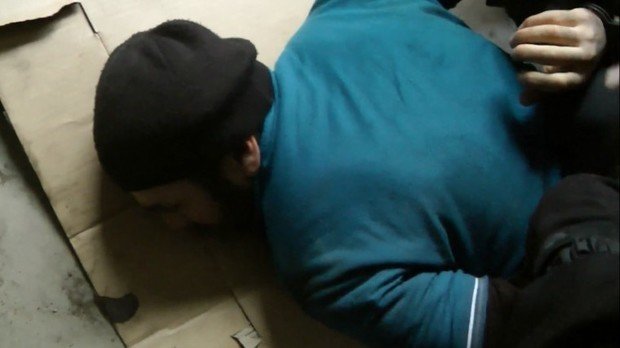
According to a number of media organisations, Nurtdinov was engaged in recruiting new adherents. On the page in Vkontakte of the Yelabuga company where he worked, there was an advertising of e-Quran with desirable news reposting, it is followed by the offer on website promotion. But the website of the company is invalid, the address is fake. In Facebook, Nurtdinov searched for Muslims in other Russian regions and distributed memes with the interpretation of Islamic sayings.
According to Zakir Sharypov, an expert at the information and advisory centre Dialog, the interpretation of the rules laid down in the scripture and theological sources is one of the reasons why Muslims sometimes take the path of extremism.
''In our scriptures about jihad it is said about as the fight for the word of God to rise. But the takfiris, jihadists, ISIS adherents tell that jihad is just the murder of not faith,'' Sharypov says.
Among those who take the path of extremism, there are also former prisoners. Once they are free, they do not adapt well and cannot find a decent job. Then kind strangers are there to come to them for help. Surrounding with care, they gradually inspire new truths.
34-year-old Yodgor Kodirov is one of the alleged active participants of the terrorist cell. He came to Naberezhnye Chelny from Tajikistan. He has no education, lived in a rented apartment in the city, unofficially worked as a janitor.
Yet most of those who appeared on the radar of the security forces are successful young people. Experts believe that the events in the Middle East have led to radical trends. However, the fashion for radicalism does not exempt from criminal liability. Ilnaz Mukhametov, as well as six of his comrades, faces up to 15 years in prison for terrorism. Having learned in court about the severity of the law, Mukhametov immediately refused his beliefs.
According to Zakir Sharypov, the family plays an important role in countering extremism. After all, among extremists there are often those who had problems in school or family as a child.
According to the FSB, Nurtdinov's group was preparing for a shooting of unarmed people, for which they purchased firearms. There comes to mind the recent tragedy in Kerch, where a boy, who as a child did not receive enough love from parents, staged a massacre of peers. The sad result — 20 dead and dozens injured.
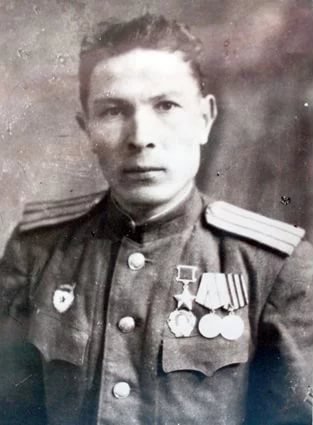
Invincible Semen Konovalov
The historical military drama Invincible about the real feat of tankers during the Great Patriotic War has been recently released in Russian cinemas. The main character is topnotch Semen Konovalov. In the summer of 1942, in an unequal battle, his crew destroyed 16 tanks, 2 armoured vehicles and 8 cars with soldiers.
In the film, the commander of the crew of the KV-1 tank, Semen Konovalov, is an officer grown wise with experience. His role is played by 45-year-old actor Andrey Chernyshov, but Lieutenant Konovalov is only 21 years old when in Lithuania in June 1941 he accepted the first battle with German invaders. To be more precise, he is 20 years old – he added one year in the documents to enter the army.
After hospital, he was sent to the south of the country — to Rostov-on-Don, the 15th armoured brigade of the 9th army of the South-Eastern front. On 13 July 1942 after a breakdown in the battle, the crew had to repair their tank. Having eliminated the problem, the crew of the KV was to catch up with their unit, but on the way they got caught by a tank battalion of the Wehrmacht. Taking a favourable position, Lieutenant Konovalov decided to enter into an unequal battle, immediately shot down four enemy tanks.
The battle of the Konovalov crew with the enemy tank armada debunked the well-established myth of the incapacity of the Red Army tanks in the first years of the war. At that time, the KV (Klim Voroshilov) was better than fascist ''panzers'', modern boys would say.
For this battle, Lieutenant Konovalov was awarded the rank of the Hero of the Soviet Union posthumously. The copy of the award sheet is kept in the Museum of the Great Patriotic War. The news that the tank commander was killed was provided by the intelligence officers when finding the charred KV on the battlefield. They didn't know that the young lieutenant and two more fighters survived, and having captured the German tank, they returned to their army. In Tatarstan, in the village of Yambulatovo, they hastened to send a death notice. So, when Semen was on the threshold of his father's house, having received a short vacation, the mother did not believe that her son was alive.
Today, 75 years after these events, it is difficult to recognize the house of the Konovalov family as alive. This is the only empty house on the street, which in Yambulatovo has the name of the legendary countryman. Public men of Verkhneuslonsky district dream to buy it and open a museum.
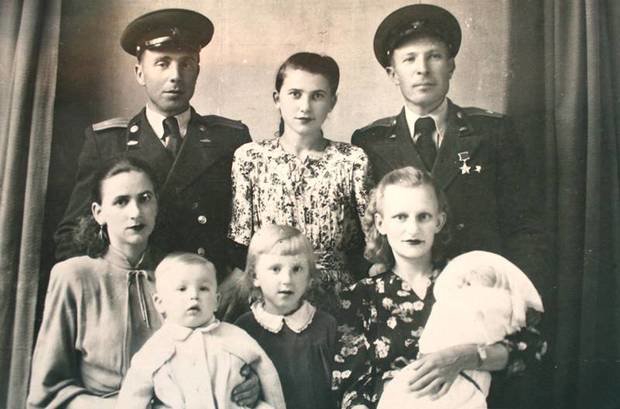
In the village of Yambulatovo, there is no museum, only a small stand in the local library. The most valuable thing here — original photos, which miraculously managed to preserve during a fire in the house of a sister of Semyon Konovalov. In yellowed pictures there is the whole life of the hero: story about how a postman became a tank officer, he accomplished the feat, reached Berlin, and after the war, having served a dozen years in the army, he was retired and worked in Kazan at a computer plant.
''The question is in money. It's a shame that officials do not want to understand that memory is priceless and is not measured by money. Memory is measured by heart and our good deeds,'' says Chairman of the Council of Veterans of the Verkhneuslonsky district Rimma Troitskaya.
During the war with fascism, 185 natives of Tatarstan, 166 inhabitants of the republic were awarded the title of Hero of the Soviet Union. More than 200 people were recommended for the title, but did not receive the award. The feat of each of them is worthy of film adaptation. But the fact that Semen Konovalov is a native of Tatarstan is not mentioned in the film Invincible.
Perhaps, it was the director's plan. Konovalov is a generalized character of the winning people. Kazan boys, playing computer games, went to the movies for Konovalov — a hero who once lived in their city. Now it is important that the memory of the legendary tankman is saved not only in films and computer games.
Welcomed among strangers
The World Congress of Russian Compatriots Living Abroad was held last week in Moscow. The Russian president stated that the number of people wishing to return to their homeland has been growing in recent months. About 800,000 people moved to 66 regions of Russia under the programme of resettlement of compatriots. Vladimir Putin also approved the new Concept of State Migration Policy until 2025. It prescribes to open Russia for everyone who wants to live and work there, to simplify the rules of entry, including the issuance of visas, as well as the procedures for granting Russian citizenship.
What else unites our compatriots and what helps them to live in another country? Correspondents of 7 Days found the answer to this question in Turkey.
In Turkish Istanbul, there are several iconic places that are of particular importance for the Turks. There is the museum complex, located near the preserved fortress walls of Constantinople, exactly where the great last battle took place, which led to the capture of the capital of the Byzantine Empire by the Ottoman army. In 2009, there was opened the ethnographic museum of all Turkic peoples at the place where the tents of the young Sultan, Mehmed the Conqueror, stood. This fact already shows the importance attached by the Turks to their fraternal peoples. So close in language, spirit, religion and culture. For each diaspora, whether it is Uzbek, Turkmen, Kazakh or Tatar, there was built a kind of house — a piece of homeland for those whom this land once sheltered.
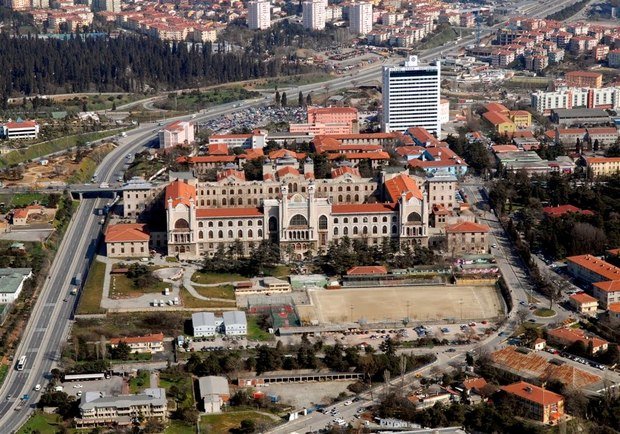
Almost all museum exhibits in the Tatar house are items from private collections. The Tatar ichigs [a type of shoes — editor's note] of the 19th century, for example, belonged to the family of Gulten Urally. She was born and raised in Istanbul. But her father, a Tatar, native of Bashkiria, Mahmut Agha Urally, was a very famous and respected person in Turkey. Gulten Khanum learned the Tatar language on her own, from ancient and melodious songs of her people. She admits that every time she comes to Kazan, she feels not only the joy of meeting with her historical homeland, her heart is filled with sadness that she hears so little native speech in Kazan.
The Marmara University is the most multilingual university in Turkey, where 50,000 students from 80 countries study. The students of the Institute of Turkology, future philologists, first begin to study the old Turkish or Ottoman language from the first year of education. The second mandatory language to study is Tatar, as the perfect one among the Turkic languages, the knowledge of which allows them to communicate with almost all representatives of the Turkic world.
''In European Oriental studies, the study of the Tatar language is a tradition that is more than 100 years old. The Tatars in history have long been present as a mediator between the Slavic world and the peoples of the East. Tatar has always been the language of interethnic communication,'' says researcher at the Marmara University lyaysan Shakhin.
Modern European Turkology here is one of the most popular areas of Humanities. For the Turks themselves, the knowledge of Turkic languages is undoubtedly a matter of pride. That is why they attach such importance to their development.
With Director of the Istanbul branch of Anadolu Agency, the largest and oldest news agency in Turkey, journalists communicated without an interpreter. The Tatar and Turkish languages are really similar in sound and grammatical structure. Many common words and concepts, but communication is possible only if you know at least one of the languages. Khusain Altynalan admitted that his grandmother was a Tatar, he also has Tatar roots. Khusain Bey has visited Kazan this year and has been delighted with the city and its residents.
''At first, in Turkey I met people from different former Soviet republics. I saw what a big difference between the Tatars and other ethinicities there is. For the Tatars in Turkey, everything is familiar,'' says artist from Tatarstan Aygul Okutan.
Aygul came to Istanbul 10 years ago. She admits that she fell in love with this city at first sight. Once and forever. Not only for the beauty and grandeur, history and culture, but for the respect and recognition of it as an important part of the huge Turkic world.
''It is in Turkey I feel more Tatar than in Tatarstan,'' Aygul admits.